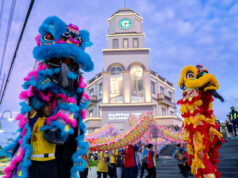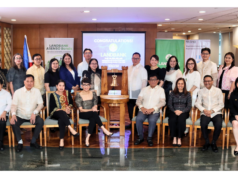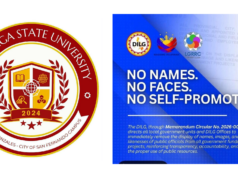A generation or so ago , and it always seems it was yesterday, traffic was not a local governance reality like politics was, is or has been and always will be. Politics , after all. Is a continuum. It may sound hopeless, so there is the challenge or the curse, as the case maybe, if you will.
Pat Guevarra, the peaceable former mayor of San Fernando, then still the capital of Pampanga, saw only half of the equation. “it’s a sign of progress”, he told a group of his media friends whom he favored every now and then with “ good only for five” notes to a local gas station, meaning five liters of gasoline. It was enough to do the regular news hunting. It also shows how traffic wasn’t yet a problem at the time;
In the time of the late Gov. Bren Guiao, when governance was fun and a slap in the back impressed or interpreted, rightly and wrongly, as a sure endorsement, traffic was never on the agenda during the morning meeting at the Capitol. Growth was, or its bragging right. Beating Cebu became a political mantra.
The subsequent eruption of Mt. Pinatubo only delayed the inevitable, perhaps made more dramatic the unprecedented growth in the province and in the future city of San Fernando, transforming the local landscape in more ways than one. Growth in traffic made it more obvious.
Last week, Acting Gov. Lilia Pineda saw the flip- side to Guevarra’s equation:it’s a problem that worsens every day it stops or delays you on your track. It appears that traffic has already arrived in Guagua, near her hometown, from Guevarra’s erstwhile kingdom. If only she could stop the wave, like King Canute of the legend. While scientists assure us that the universal continues to expand, traffic continues to get worse before they get better, and the challenge or curse inevitably ends up on the local official’s, mayor or governor, plate.
One local official was once asked about the predictable problem in his area, and he was quick to draw a simple solution : traffic aides. The problem continues to be predictable as ever to this day. The traffic jams that are a daily occurrences where traffic aides were as seen part of the problem remain. So do the traffic aides.
Albert Einstein had earlier warned that you cannot solve a problem on the same mindset or thinking it was created.
Traffic aides may seem remotely inspired by Einstein’s suggestion. They are humans,too and no match for the harsh and hard realities in their territory: rain, heat and wayward motorists. Whether they are vulnerable to persuasive factors, it’s part of the landscape. There are traffic signs, some dumb down for effect, but still are largely considered as optional, mere suggestions and not applicable, thank you.
Traffic is costly. A Japanese study estimated that about P6 billion a day is lost in the traffic gridlock in Metro Manila. It’s a warning to other regions beyond the Imperial Capital. There was once a resounding call to decongest it as a sure-fire solution. When it looked like traffic was beginning to clog up city streets in Pampanga as well , the strident call suddenly ceased. One businessman asked another businessman if he still believed in the idea of decongestion. Progress had overtaken the summon.
The recent appointment of the son of former Clark top man Arthur Tugade to a transport agency brings hope that the traffic problem in the country would be eased. If the father’s genes are dominant, he should have an eye for the obvious and doable.When he came to Clark, the older Tugade saw something unusual in the corporate practices. He found out, for instance, that government mone y was placed in the checking accounts, where it didn’t earn interest, instead of into saving, were it should have earned. For some reason, it also decided to do away with some incentives, triggering the exits of some executives. Tugade didn’t mind.
Tugade, the Younger, may following his father’s footstep as the new kid on the LTO block: see the obvious, do the doable. He can start with the licensing process where a big, critical part of imposing discipline among drivers can start. Start with the fixers which the agency says on its posters are illegal, but lurk around the environment, in and out.
Implement the laws or the ones taken for granted. For instance, there used to be a law that banned tricycles on highways. Pity the poor, one former LTO executive explained why the law was mothballed in his time. The executive was a former mayor, a politician, to be exact, in a position where political will is needed.
The younger Tugade can start with something that be felt and seen. The others, he can learn like a parachutist: on the way down.
Like politics, traffic is too important to be left alone to politicians. He may also consider having a hand in choosing and training traffic aides to do their job more effectively and with authority. The other night, one self-appointed parking valet stopped a bike-riding traffic aide while guiding a “client” to a slot as if he had the authority to do so.
The police should rediscover their old role in helping manage the burgeoning traffic problem in our society. They seem to be not really keen on resurrecting an old task with the same passion and conviction. It’s consistent with the serve and protect mandate. The acting governor suggested that in calling the police to help in managing the rising traffic menace. Again, Tugade can harness the cooperation of the local officials, the police, and the private sector, especially the business sector in collectively addressing the traffic pains..
“ Have you ever noticed that the one driving slower than you is an idiot and any driving fast is a maniac?”, George Carlin said.
The younger Tugade can break the mindset. It will be a good start.





